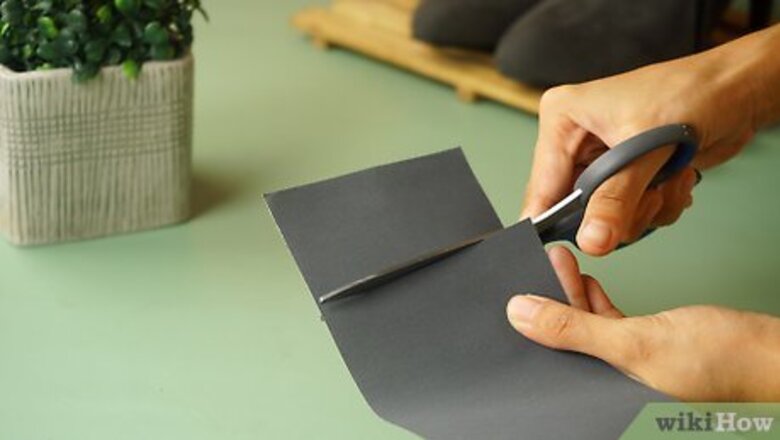
views
Sanding Off the Stain
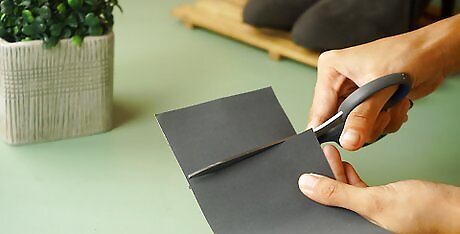
Obtain a small piece of fine-grit sandpaper. Sanding is generally considered the best way to remove stains from suede. An emery board, a common type of nail file, is convenient and will also work well for this method. An emery board is essentially a small strip of fine-grit sandpaper glued to a piece of cardboard. You can buy inexpensive emery boards from most grocery stores, pharmacies, and beauty shops.
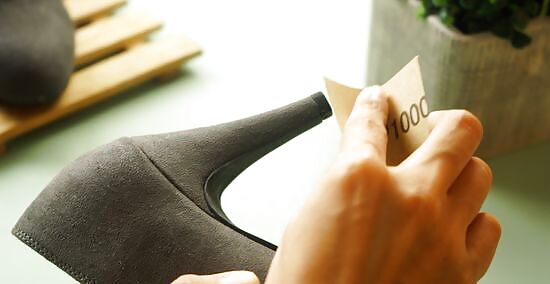
Do a spot test. While sandpaper is relatively safe for suede, it may not be right for all items. Some processing and dyeing methods may make suede more prone to damage from friction. To make sure sanding won't ruin the suede, do the following before tackling your stain: Pick a small, inconspicuous spot on your item to test. This should be in an area that is hidden from view during normal use, such as the inside of a jacket. If you can find no such spot, pick one that is less visible, such as the inner side of a shoe rather than the outer side. Gently rub the sandpaper on the spot. Go back and forth a few times. Check for damage. It's normal to see some loose fibers after sanding suede. These can be shaved off with a razor. However, if there is any discoloration or major changes in texture, you should try a different cleaning method.
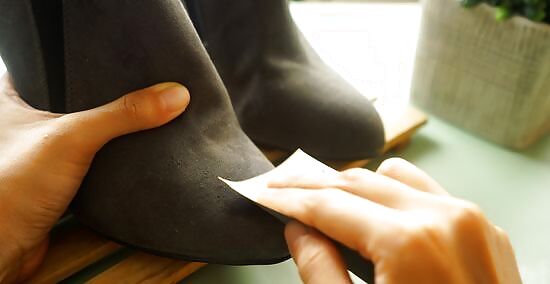
Buff away the stain. Gently go over the stain with your sandpaper. Make small circular motions all over the stained area. Apply only the lightest amount of pressure possible. Be careful not to abrade the fabric. The stain should gradually wear away.
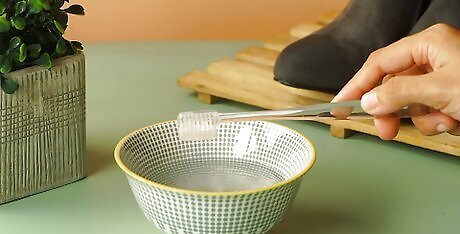
Follow up with white vinegar or rubbing alcohol. It's possible that sanding alone will not remove the stain. If there is still a stain that won't get any lighter, stop buffing and try a solvent method: Soak a soft bristle brush with either white vinegar or rubbing alcohol. Gently scrub the stain, being careful not to abrade the suede. If the brush dries out before you've completely lifted the stain, soak it again with your solvent of choice. Once the stain is lifted, finish up by brushing the area with a clean toothbrush.
Erasing the Stain
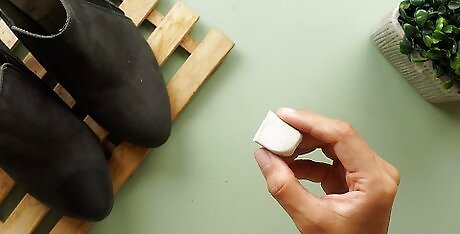
Find the right eraser. It can be an eraser made of rubber, vinyl, or art gum. The important thing is to make sure your eraser is white (or tan if it's made of art gum). Erasers that are dyed bright colors like pink can create an even worse stain. Suede cleaning kits are often sold with a special suede eraser.
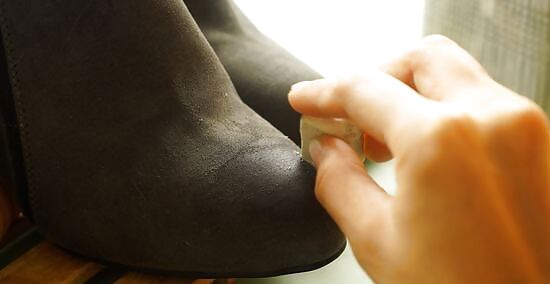
Rub the stain with your eraser. Press the eraser against the stained suede and rub it just like you were erasing pencil off of paper. Apply strong pressure to the eraser as you rub. Erasers are gentle and unlikely to damage the suede. Keep going back and forth with the eraser until the stain either is completely lifted or stops getting lighter. Depending on how badly your suede is stained, this step may take a long time. You may also end up needing to use a second eraser if the first is completely worn down. Brush off the residue when you're finished.
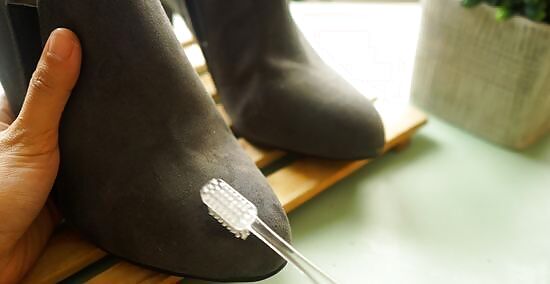
Follow up with a solvent if necessary. If the stain persists after your eraser stops being effective, you will need to remove the rest of it with a suede-safe solvent: Soak a soft bristle brush with either rubbing alcohol or white vinegar. Scrub the stain gently with the brush. To avoid abrading the suede, use only a very light amount of pressure. For stubborn stains, alternating between rounds of erasing and brushing may give you the best results. Run a clean toothbrush over the area once the stain has been completely removed. This will help to restore your suede to its proper texture.
Minimizing Stains
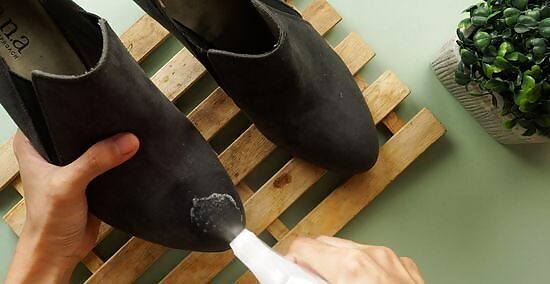
Seal your suede with a protective coating. Because suede is so difficult to clean, it's better to prevent ink stains from happening in the first place. Suede-protecting sprays can be found in most drugstores, leather shops, and shoe stores. Even if the sealant cannot protect your suede completely, it may result in a stain that is lighter and easier to remove compared to an unsealed item. Be sure to do a spot test with the sealant before coating your entire item. Even products specifically made for suede may still cause discoloration due to variations in manufacturing. Re-seal items every few months. Brush your item with a suede brush before and after spraying.
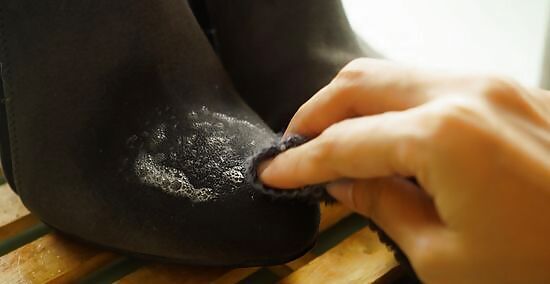
Mop up excess ink immediately. A universal rule of stain control is to soak up extra liquid before it can spread. Blot the ink with a clean cloth. Do not rub with the cloth by moving it from side-to-side. Instead, pat the spot with up-and-down motions. Be careful not to press down too hard. Rubbing and too much force can push the pigment into your suede, making the stain harder to remove.
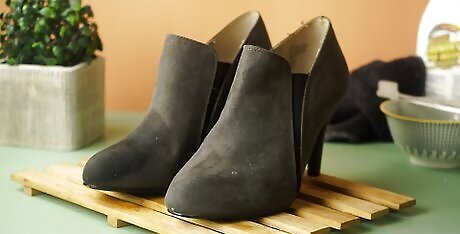
Remove the stain as soon as possible. You should begin stain removal immediately after the ink has dried. The longer you leave the stain, the more difficult it will be to remove. Sometimes stains allowed to set for too long may become permanent. Unlike many other types of stains, it's more prudent to allow ink stains on suede to dry out before cleaning. The sandpaper and eraser methods will not work on wet ink. Additionally, attempting to clean wet ink using only a solvent may cause the ink to run, spreading the stain.




















Comments
0 comment